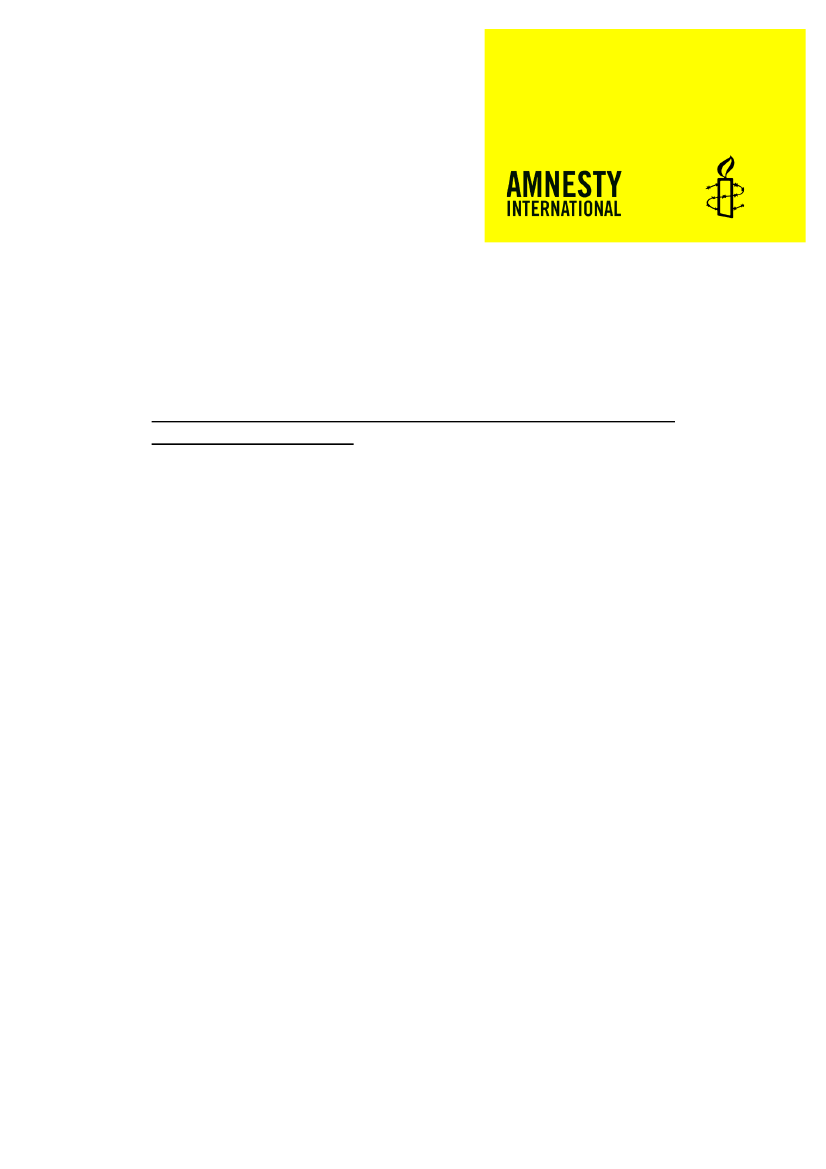
Danish Immigration Services
Attention: Department reg. Country of Origin information
Sandholmgårdsvej 40
3460 Birkerød
14. December 2021
Subject: Country of Origin (COI) report on Syria and Amnesty
International’s comments
Amnesty International would like to comment on the Danish Immigration Service’s
recent COI-report from October on
issues regarding return to Syria
which we have
read with interest. We appreciate the Immigration
Service’s inclusion of Amnesty
International’s report ‘You’re
going to your death’
in its background information.
Having read the report closely, we have noted several inaccurate statements in
the report and have additional comments on the information and analysis
presented in the report.
We are aware that the Immigration Service is determined to be as neutral and
objective as possible without drawing conclusions in their COI-reports. However,
we found that the brief misrepresents some facts involving the security clearance
and settlement of status processes, security risks posed by the Syrian security
forces and intelligence apparatus, and implications on lack of monitoring and
protection.
On page 12, the report states that
“Syrian
citizens who want to return to Syria but
who have left the country illegally due to the conflict, or who have unsettled
military and security issues, can settle their issues with the Government of Syria”.
Amnesty International wants to stress that this information comes from the Syrian
Ministry of Foreign Affairs and the Syrian Embassy in Stockholm. These sources
cannot be considered neutral. Research shows that not having performed the
military service is a very common reason for people to be detained upon return.
Amnesty International has documented cases of people who were detained for
this reason for several months and then sent to the army in Idlib.
1